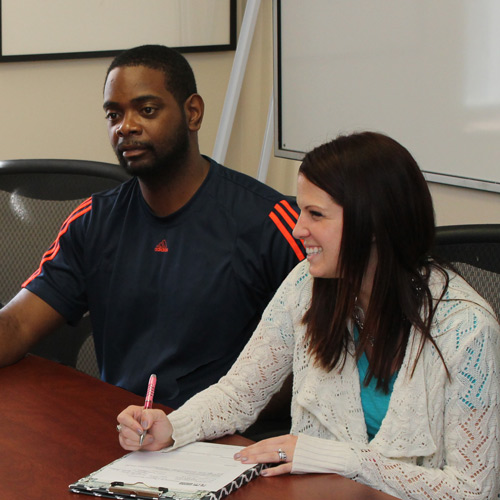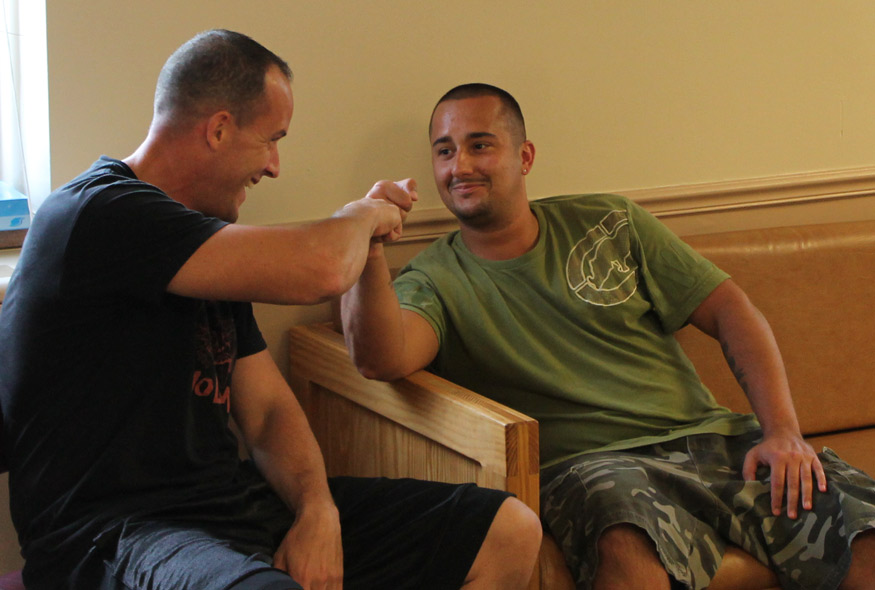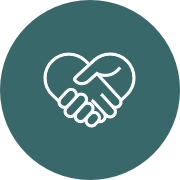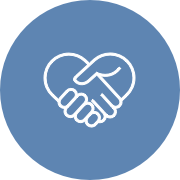
Core Values
Michael was asked how many other programs he’d tried as he sought to re-integrate into society as a returning citizen, and he said: “Ha! All of them!” But at C.O.R.E., an RHD program for returning citizens in Pittsburgh, Michael is having success for the first time – staying sober, making every meeting, hitting all his goals.
“This has been the best experience,” Michael said. “It’s a blessing to be here. I felt like I lost track of who Michael was. But I found him again, here at C.O.R.E.”
C.O.R.E. stands for Capitalizing On a Recovery Environment. It is a long-term (6-month) community reintegration recovery program for individuals with mental health and substance abuse issues. It’s one of the newest projects at RHD, a nonprofit human services provider that has been improving lives across the nation since 1970 and specializes in innovative programs and creative solutions wherever the need exists.
“In too many recovery models, the focus is rules enforcement and compliance – but when you walk out the door, people who were telling you what to do and enforcing the rules don’t go with you, so you revert back to old behaviors and decision making,” said C.O.R.E. director Kevin Kordzi. “Here you’ve got to figure things out and make a decision for yourself – why do something, whether it worked or didn’t, whether it supports recovery. We focus on life skills, social skills, really teaching people how to function in community.”
Dan said when he first arrived at C.O.R.E., he thought it was too good to be true: “I was ready to run. I thought it was a trap! People were kind to me. Not patronizing – kind! It freaked me out …”

“This was the end of the line for me,” Dan said. “I’ve gotten nothing but help since I’ve been here, and I’ve been treated with nothing but respect. In 30 years in the system, this is the only place I’ve ever been where I feel like I have a chance. They actually give a damn whether you live or die. I don’t trust anybody; I keep people out. But I trust people here. I’ve talked more here than I’ve talked in 20 years.”
Kordzi pointed to one specific example of the way C.O.R.E.’s services are based on empowerment and development of problem solving and life skills: Food in the kitchen area was freely available, and on several occasions clients who’d previously had access to food strictly regulated were over-indulging, just because they could. This caused regular shortages in the kitchen. Instead of the staff imposing rules (or locking the refrigerator), Kordzi and the C.O.R.E. staff called the clients together and asked them to solve the problem.
“They had incentive to solve the problem, and they had opportunity,” Kordzi said. “They talked seriously about what the issues were and what they wanted, and they came up with a way to regulate access to the refrigerator that accomplished their goals and still treated everybody fairly. As a group, they decided the best way forward and exhibited good decision-making skills. That’s what you want to see.”
Dex, a client at C.O.R.E., explained it this way:
“The rules and client expectations had not been established yet. Why? Because it was up to the clients to format them,” Dex said. “Unaware at the time, I was being exposed to empowerment. What I was aware of was that I had finally been sent to the right place.
“In taking an active role in my own treatment, I was able to see that I could take an active role in my own recovery. I was given freedom that allowed me to make mistakes. With mistakes came learning experiences with their own consequences – real consequences with indelible impressions. An unconventional, personalized treatment setting in which clients are free to facilitate and, for lack of a better word, govern. I hope the C.O.R.E. staff, as well as present and future clients, keep the spirit of this program, uphold the RHD values, and not let time dull or suffocate something that can blossom and thrive into a real asset to the community.”


